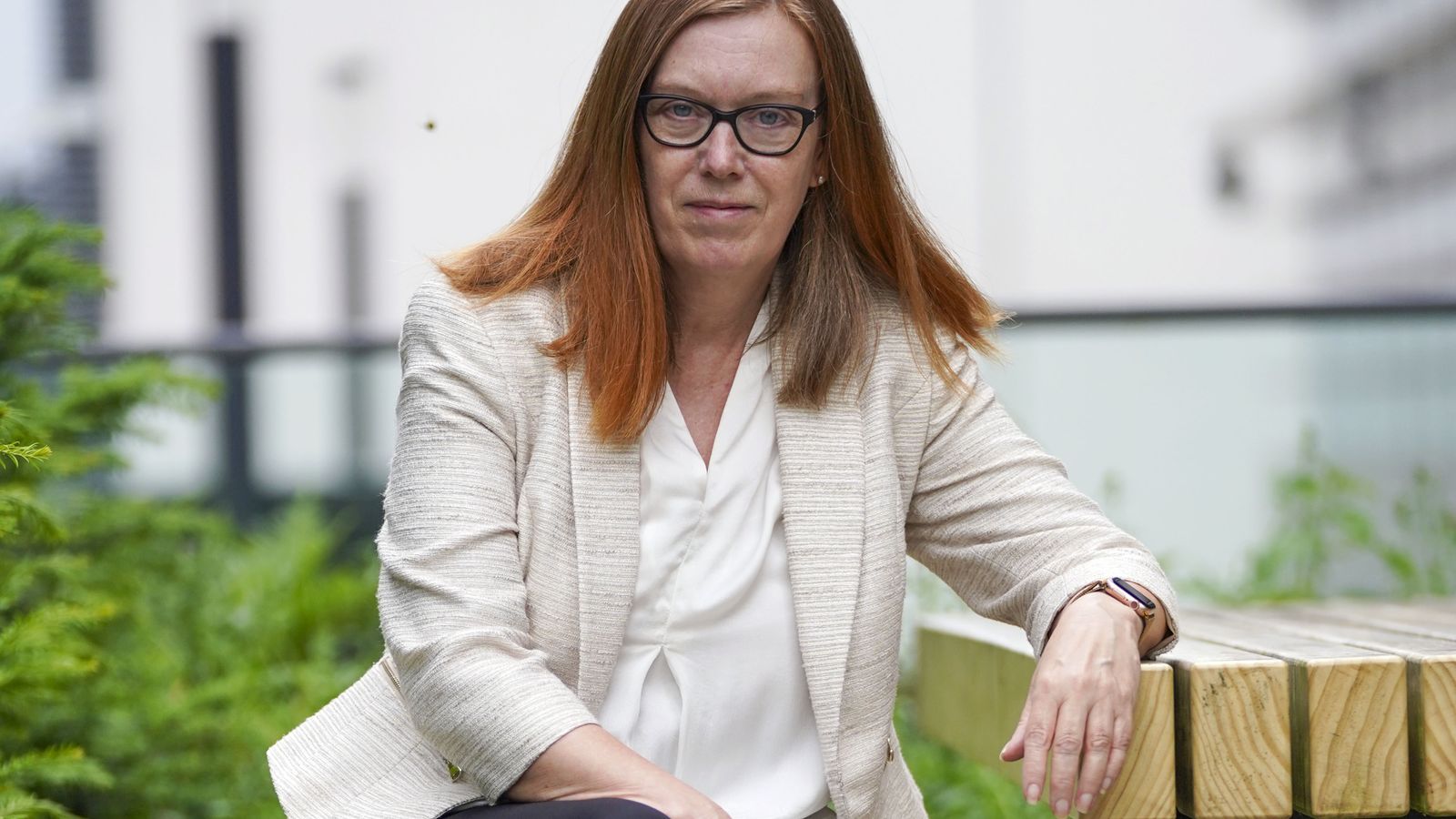The next pandemic could be more deadly than COVID-19, according to one of the scientists behind the Oxford-AstraZeneca vaccine.
Professor Dame Sarah Gilbert said: “This will not be the last time a virus threatens our lives and our livelihoods.
“The truth is the next one could be worse. It could be more contagious, or more lethal, or both.”
Dame Sarah gave her warning while delivering the 44th Richard Dimbleby Lecture, named in honour of the late broadcaster.
Follow the Daily podcast on Apple Podcasts, Google Podcasts, Spotify, Spreaker
She said: “We cannot allow a situation where we have gone through all we have gone through, and then find that the enormous economic losses we have sustained mean that there is still no funding for pandemic preparedness.
“The advances we have made, and the knowledge we have gained, must not be lost.”
COVID-19: Riot police deploy water cannon and tear gas against anti-lockdown protesters in Brussels
COVID-19: UK Omicron cases reach 246 after 86 new infections reported, according to latest figures
Kate Garraway’s husband Derek Draper ‘in terrible state’ amid fears ‘inflammation passed through brain’
Along with the vaccine developed by BioNTech and Pfizer, the Oxford-AstraZeneca vaccine was one of the main parts of the UK’s COVID-19 vaccination programme when it began a year ago.
Since then, it has been used in more than 170 countries.
Before COVID-19, Dame Sarah worked on vaccines for more than 10 years, using antigens from malaria and influenza.
She was recognised with a damehood earlier this year for services to science and public health.
Please use Chrome browser for a more accessible video player
The 59-year-old also spoke about the emerging Omicron variant, which has prompted the return of restrictions in many countries.
She said: “The spike protein of this variant contains mutations already known to increase transmissibility of the virus.
“But there are additional changes that may mean antibodies induced by the vaccines, or by infection with other variants, may be less effective at preventing infection with Omicron.
“Until we know more, we should be cautious, and take steps to slow down the spread of this new variant.
“But as we have seen before, reduced protection against infection and mild disease does not necessarily mean reduced protection against severe disease and death.”
On Sunday night, the UK reported a further 86 cases of the Omicron variant, taking the total to 246.
The government has already reintroduced several measures to tackle the disease, including mandatory face masks in shops and on public transport, and pre-departure testing for all UK arrivals.
It is also thought that the UK could face “more stringent measures” after Christmas.
Meanwhile, The Daily Telegraph has reported that some of those most at risk are yet to receive their booster vaccinations.
Please use Chrome browser for a more accessible video player
The newspaper said that an unpublished Whitehall analysis showed only 170,000 housebound people had received their dose by the end of last week out an estimated 470,000.
More than 60% of the over-50s have received their booster.
A NHS spokesman said: “Local NHS and GP teams are contacting their eligible housebound patients, and we are working closely with St John Ambulance to give local areas additional support.
“We are also providing additional funding to help local teams secure additional staff so that all eligible housebound patients are offered a booster as quickly and safely as possible.”






















